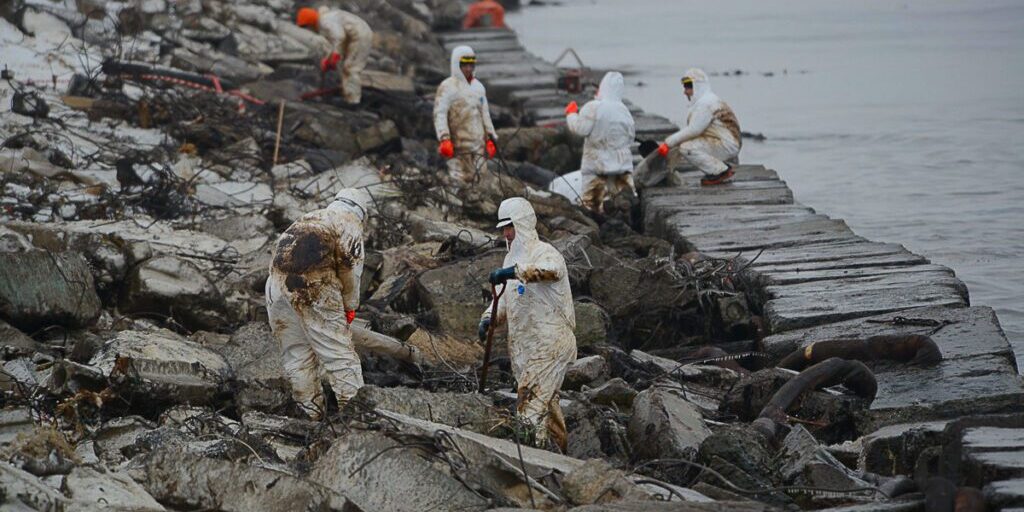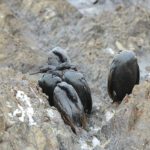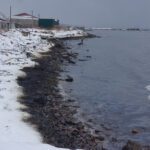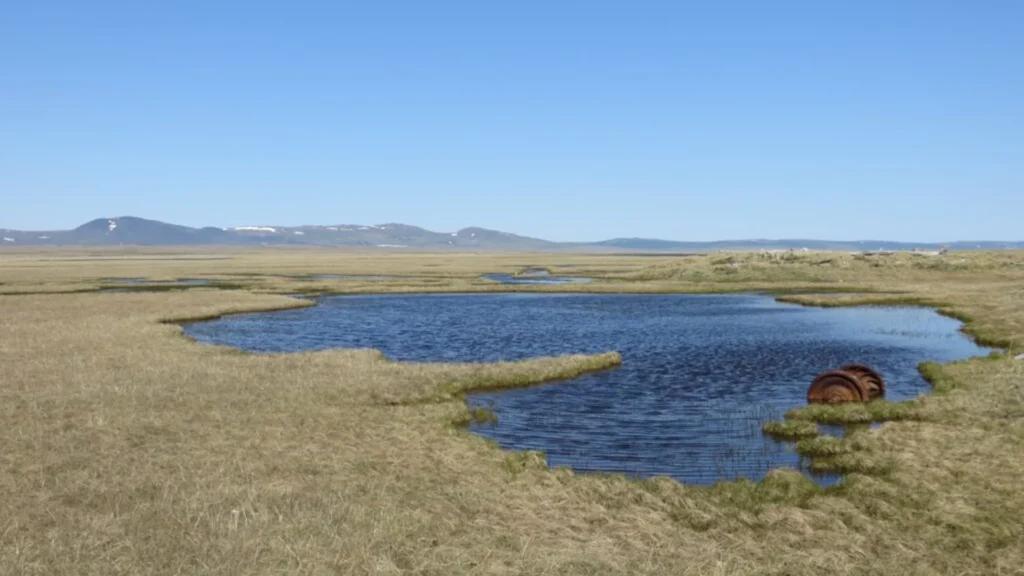A Russian tanker, carrying 200,000 gallons of oil, ran aground off an island in the North Pacific this weekend. According to an article published by The Siberian, the tanker struck a reef off the island of Sakhalin during a storm.
It’s been stuck on that reef since Saturday, leaking oil into the surrounding area. The region’s governor has called it an “ecological disaster.”

Pictures of an oiled shoreline quickly surfaced online, leading many to worry about the far-reaching effects of the spill. Melanie Smith, Director of Conservation Science for Audubon Alaska says that, along with contaminating the local wildlife, some Alaskan species may be affected as well.
“There’s a very large sea lion rookery there and several globally significant bird areas are in the region and a number of Alaskan species use those IBAs- important bird areas,” Smith explained.
“We’re not sure whether individual birds that travel between Sakhalin and Alaska are being affected, but we do know that a number of Alaskan species are present in that area, which is part of our concern.”
Audubon Alaska has been working with the Coast Guard to prevent accidents like this one from happening in American waters. Along with designating a specific shipping route for the Bering Strait, Smith says Audubon’s top priority has been the designation of “areas to be avoided.”
“And that’s a technical term that designates a place off limits to ships other than those that are accessing local communities,” explained Smith. Aside from local traffic, she said “large vessels would avoid those areas whenever they need to deviate from the route that the Coast Guard identified. “
The Bering Strait not only serves as a chokepoint for vessel traffic, but also as one of the world’s most active migratory corridors, which in turn helps feed the region’s Native communities.
The Bering Strait sees the migration of hundreds of thousands of mammals, about 12 million birds nesting in the region, and serves as an important cultural subsistence area.

“So those areas to be avoided that we’ve identified, there are four of them,” Smith said, “they would protect those ecological and cultural values.”
Despite those efforts, a spill in the Bering Strait would still be hard to respond to.
The Russian tanker that ran aground in the North Pacific was less than 500 feet from a port that has access to clean-up equipment. But, those efforts were stalled due harsh weather.
Elena Agarkova, Senior Shipping Officer at the Worldwide Wildlife Fund’s Arctic Program, says this incident should encourage more infrastructure development.
“In the Bering Strait, you know the northern Bering region, we don’t have that kind of response infrastructure, so even if the weather cooperates, it will take a much longer time for any response vessel to reach the potential oil spill location.”
Agarkova added that “it’ll be even more difficult for U.S. or Russian forces to respond to an incident like that in the Bering Strait.”
And that brings up the final hurdle to ensuring safe shipping through the strait: cooperation between the U.S. and Russia. Agarkova says the WWF has been advocating for more bilateral cooperation.
“We’ve been urging the Coast Guard to resume their cooperation with Russia on oil spill preparedness and response including holding actual exercises in the Bering Strait.” A joint oil spill response exercise was supposed to take place a few years ago, but it was postponed.
“And because the current political situation,” Agarkova said, “it’s been a challenge to get that process going again.”
While cooperation may be a long way off, many on both sides of the strait are hoping the North Pacific storm will soon pass. Meanwhile, oil continues to leak into surrounding waters.










